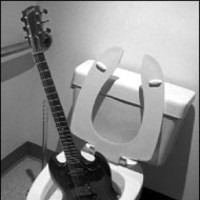Page 4 of 4
Worse, the company recently posted a net loss of $73.1 million through September, even after laying off 20 percent of its workforce. BMG has slipped from being No. 2 in US music sales in 2000 (behind industry behemoth Universal Music) to No. 4 last year.
Smaller indie labels took hits last year too, when record distributor DNA, the all-important middleman that physically gets CDs into stores, went bankrupt. In industry down times, distributors like DNA are particularly vulnerable, and their collapse leaves chaos. Indies have had to scramble to find new means of distribution, and cash flow is immediately affected; more important, DNA closed its doors while owing some record companies tens or even hundreds of thousands of dollars in billings. Smaller labels can find a loss like that fatal. And with fewer labels, there will be fewer chances for new acts to get signed.
Then again, some acts currently under contract may wish they weren't or at least they may wish they hadn't signed the contract they did. A new advocacy group, the Recording Artist Coalition, led by Don Henley, is the first of its kind for artists and is starting to ask pointed questions about how labels do business. Contentious issues include royalties earned from online subscription services, the number of years artists are contractually obligated to stay at one label, and who is the real copyright owner of a finished CD.
The topic of artist contracts has always been a swamp of discontent, a seemingly intractable mix of traditional industry exploitation, superstar egos and the natural imbalanced economics of the music business, where 9 out of 10 records lose money, and somebody has to pay for the flops. The system is far from perfect, but artists lucky enough to make a handsome living have begged off trying to fix it. Until now.
"The music business is big business and record labels want to maximize their profits. That's OK," says music attorney Cooper, who represents the 120-member coalition. "Artists are simply asking what's fair as far as profits are concerned."
Unfortunately, after the year the music business just experienced, splitting up profits is a luxury that not many industry players will have to worry about.
Eric Boehlert is a senior writer at Salon, where this story originally appeared.
« previous 1 2 3 4
Speaking of Metrobeat.html
-
The Need is Great
Nov 13, 2002 -
Suite Proposition
Oct 23, 2002 -

Lazes Touts Elmwood Area
Oct 9, 2002 - More »
Latest in News
More by Eric Boehlert
-

Music Industry Down The Toilet?
Jan 5, 2001 - More »






